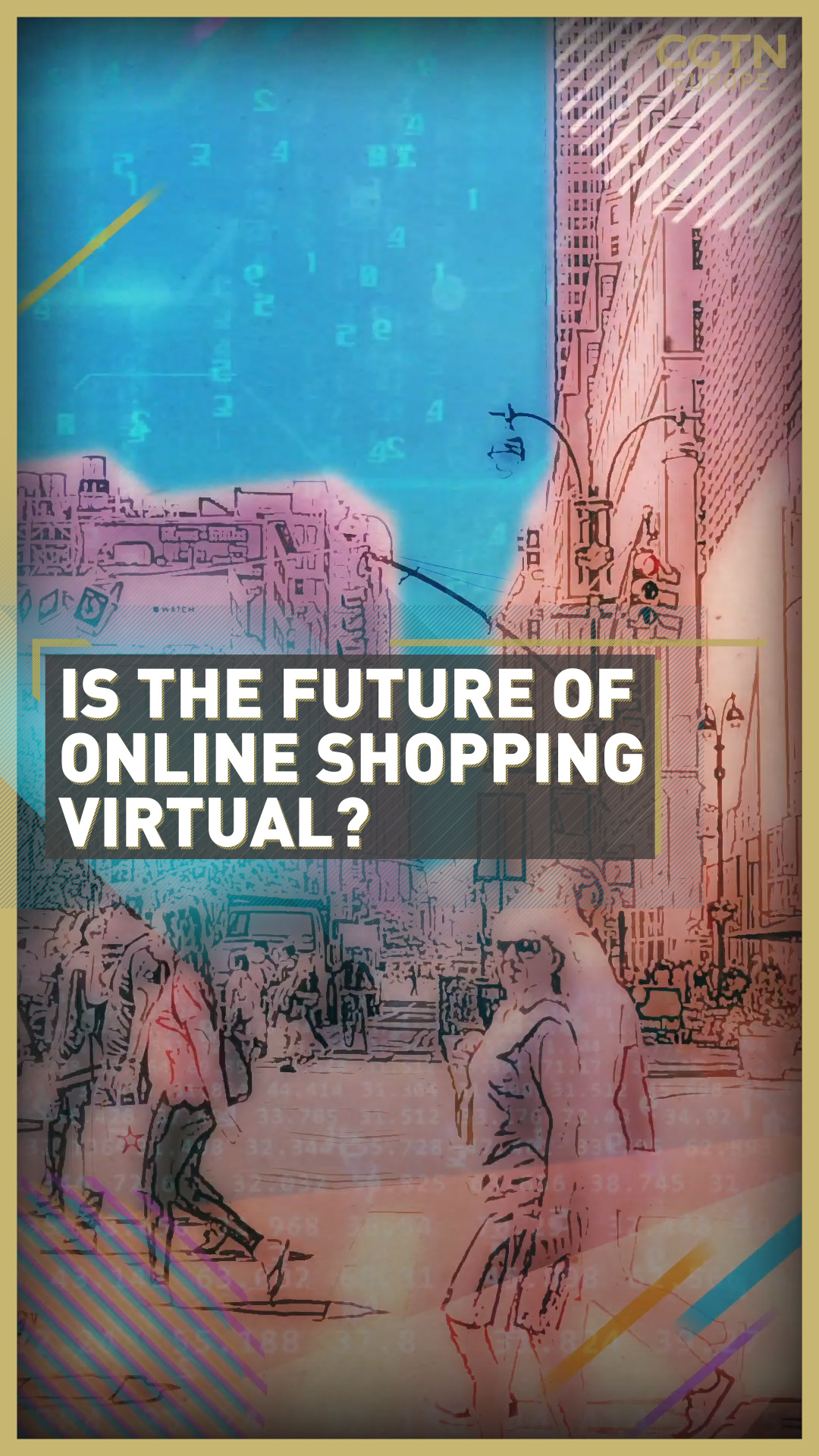03:26

In the 1995 movie Clueless, the main character Cher starts her day by using a program to virtually try on clothes in an online fitting room.
When this film came out, this was just a niche idea to mock how rich this fictional character was.
But now products like Cher's online pixelated version of herself trying on clothes are about to become more mainstream.
For the past couple of years, the stores on high streets across Europe have been increasingly threatened because of high rents and online shopping – a problem made worse by the pandemic.
In the summer of 2019, footfall in UK stores fell by 3.1 percent compared with the same period in 2018.
And in July of this year, footfall fell by 42.1 percent compared with the same month in 2019, according to the BRC, a trade association for retail businesses in the UK.
In the wake of this change, companies have started to look for more appealing ways to attract customers online.
Style.me is one of the companies that has benefited from this increase in interest.
It creates a plugin for websites that allows customers to create online avatars to try on clothes for them, similarly to Cher in Clueless.

Customers can make their Style.me avatars look like themselves with options to change skin tone and hairstyles. /Style.me/
Customers can make their Style.me avatars look like themselves with options to change skin tone and hairstyles. /Style.me/
All customers have to do is go to a website that already has the feature available, type in their height, weight, proportions, and bra size if applicable and then they can see what their clothes would look like on a body similar to their own.
Style.me was founded in 2015, long before the pandemic, but now this ability to virtually try on clothes is more appealing to companies.
"With the lockdown, everything went into kind of a crisis mode for a few weeks," said Rufus Parkinson, the CEO of Style.me
"And obviously retailers were thinking through how they would survive. Then what happened is within that two or three weeks' time, we started to see a real surge in demand, especially from mid- and smaller-sized independent retailers, who were realizing e-commerce was really the only game in town," he added.

The website remembers the avatar a customer creates so they don't have to design it for every outfit they want to 'try on.' /Style.me/
The website remembers the avatar a customer creates so they don't have to design it for every outfit they want to 'try on.' /Style.me/
According to Parkinson, one of the draws of this avatar is that clients who use it spend two-and-a-half times longer on a website looking at clothes than they would otherwise, and they "try on" four to five pieces of clothing on average.
Style.me is not the only company trying to do this.
Zeekit, a start-up in Israel, clams it is are about to launch the world's largest online fitting room, where customers can try hundreds of thousands of clothes on virtual images of themselves.
Amazon is also trying to do something similar.
One of the things that all these companies are trying to improve is the attraction of online shopping.
"Some people find e-commerce boring," Dan O'Connell, one of the co-founders of BrandLab Fashion in Cardiff, told CGTN Europe.
"And, as such, many top e-commerce companies and retailers are trying to find all sorts of different ways, like holograms or augmented reality and all sorts of gimmicks, to make it more interesting."
BrandLab Fashion creates virtual conference halls for the wholesale fashion industry.

One of BrandLab Fashion's virtual showrooms for the wholesale fashion industry. /BrandLab Fashion/
One of BrandLab Fashion's virtual showrooms for the wholesale fashion industry. /BrandLab Fashion/
But in the next couple of months, it is planning to launch virtual counterparts of actual high street stores.
"When I'm shopping online, I'm always doing it while I'm doing something else. It is always in the background or I'm doing it on my phone," Jennifer Drury, the other co-founder of BrandLab Fashion, said.
"I can't tell you the amount of times I had a basket full of items that completely disappear because I haven't gone back."
She added that this virtual store will be "more immersive and it's more enjoyable" than traditional online shopping.
"It will be something to be more focused on than just leaving in the cart for weeks and weeks until [a customer] gets back to that order."

Customers would be able to 'walk' around BrandLab Fashion's virtual stores. /BrandLab Fashion/
Customers would be able to 'walk' around BrandLab Fashion's virtual stores. /BrandLab Fashion/
In these online stores, customers will be able to browse a virtual version of an actual store, talk to employees, or even share the experience with friends via video chat.
But with the closure of high street stores comes other consequences, such as the loss of jobs that may never come back.
Because of the pandemic, UK Arcadia, the company that owns fast-fashion brand Topshop, said it will cut 500 head office jobs.
And luxury brand Harrods said it will cut around 700 jobs, or around 14 percent of its workforce.
But Parkinson claimed that these "gimmicks" to attract people online won't be the end of the high street, despite the falling numbers of bricks-and-mortar shops.
"I think there's always a role for retail," he said. "Some people still want to touch and feel that clothing … So, I see that it's going to benefit, it's going to complement, but retail will still be there."
Regardless of any predictions, virtual shopping is coming soon. And for some it is already here.
BrandLab Fashion said it is in talks with some high-street brands to launch a virtual counterpart of their stores in the next couple of months. And Style.me is already available on some websites.
Video editing and animation: James Sandifer.